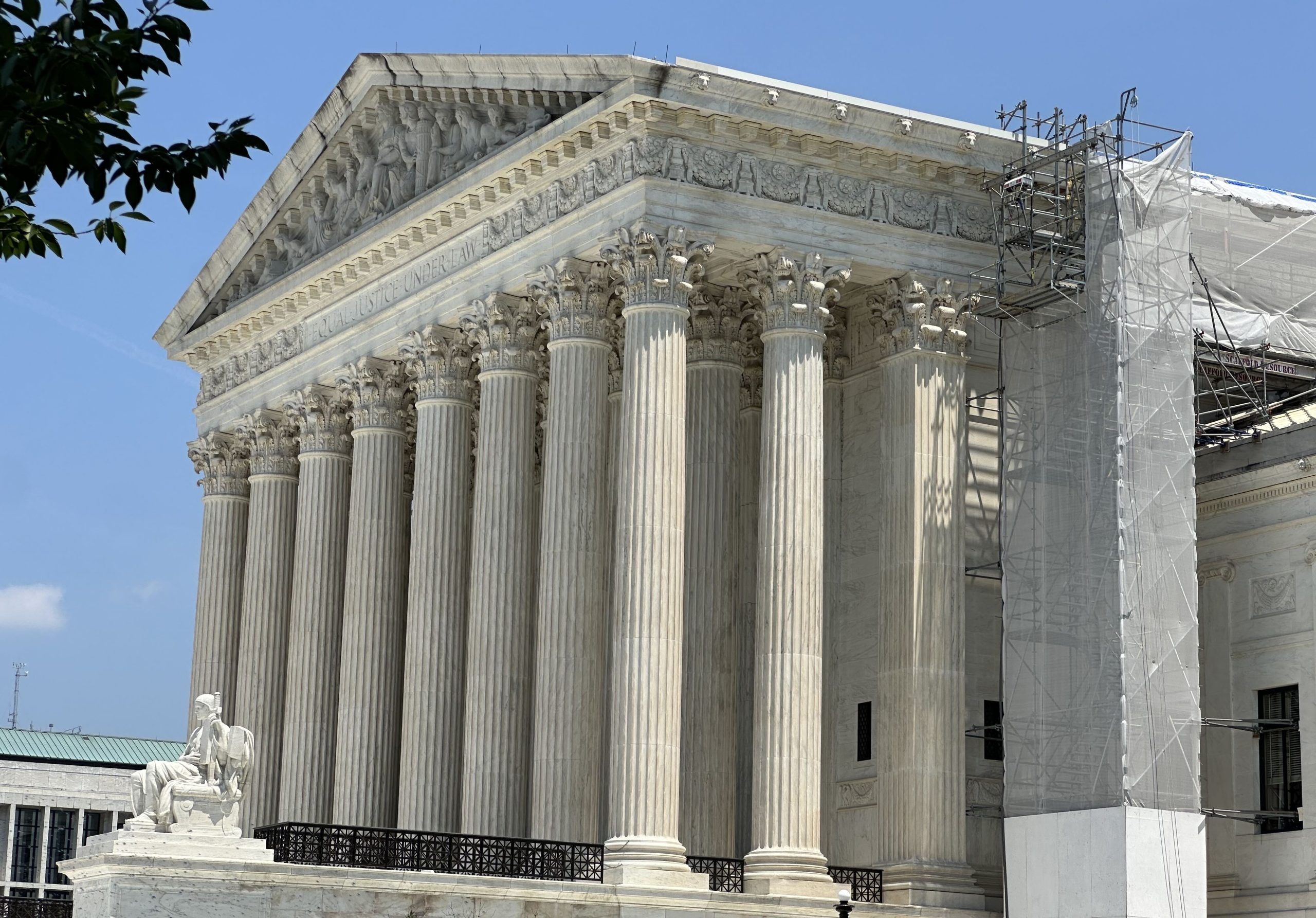Court to consider billion-dollar judgment for copyright infringement


The court will hear its big copyright case for the year during the first week of the December session, when on Monday, Dec. 1, it reviews a billion-dollar ruling against Cox Communications based on its failure to eradicate copyright infringement by its customers.
I expect that many readers of this blog will be shocked, shocked to find that internet users in the United States download and use copyrighted materials (movies, music, and the like) without authorization from the copyright owner. Readers also will recognize that major content providers (like the plaintiff in this case, Sony Entertainment) won’t get very far by trying to sue those users one by one.
So pretty much the only things content providers can do, aside from locking up their content with more effective technological controls, is to sue the service providers from whom the internet users get access to the internet. And so we have Cox Communications v. Sony Entertainment. Sony successfully proved that many of Cox’s subscribers are flagrant copyright infringers, and it also proved that Cox continued to sell internet access to subscribers for whom it had received repeated notices from content providers like Sony alleging that the users were engaged in infringing conduct.
Cox’s perspective is that internet service providers receive millions of these notices each year, generated for the most part by bots that monitor file-sharing networks, and that it can’t reasonably be expected to cancel internet service based on those kinds of notices. At trial, the jury was unimpressed with Cox’s perspective, and Cox may now face damages of over $1 billion.
Before the justices, Cox argues that it shouldn’t be held liable for its users’ actions. Specifically, Cox contends that it is selling a “general-purpose internet connection” and has taken no affirmative steps of any kind to induce or encourage infringement. In particular, Cox points to the court’s recent decisions in cases involving Grokster and Twitter to mean that the absence of any affirmative act by Cox that supports or facilitates copyright infringement should insulate it from liability.
Sony, by contrast, argues that longstanding copyright law establishes liability for anybody who provides a tool knowing that their customers will use it to infringe copyrights. It relies in particular on an oft-cited lower-court opinion involving the publishing company Gershwin that condemns anyone who “with knowledge of the infringing activity, … materially contributes to the infringing conduct of another.” According to Sony, Cox got exactly what it deserved under existing law, and if copyright law in this area is broken, any necessary repairs need to come from Congress and not the courts.
The briefing in this case is interesting, because Cox presents much of its case as a basic policy argument. It emphasizes that a huge share of the millions of copyright notices the content providers send out are baseless, and that the kinds of “users” Cox is expected to terminate include hospitals, military bases, and even regional internet service providers. Do the justices really want a hospital’s internet access terminated because patients at the hospital are serial copyright infringers?
From my perspective, none of the existing Supreme Court opinions are sufficiently specific to compel the justices to reach a decision here, and reasonable minds can differ on how firmly they lean one way or the other. So if Sony wants to preserve its victory, its counsel Paul Clement is going to have to convince the justices that the rule of law applied here is a reasonable one. And I expect he’ll face a real challenge from some of them when he tries to do that next week.
Posted in Court News, Merits Cases
Cases: Cox Communications, Inc. v. Sony Music Entertainment